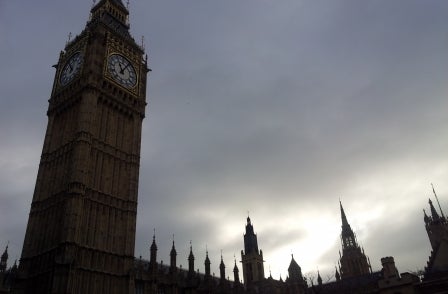
Ahead of today's crunch Parliamentary dealings on press reform, several national newspapers warned that underpinning press regulation with legislation would spell the end for press freedom in the UK.
It emerged this morning that cross-party consensus appears to have been reached on a legislative amendment which will prevent the press regulation Royal Charter being altered without the backing of a two-thirds majority of both houses. It remains to be seen whether the likes of Associated Newspapers, Telegraph Media Group and News International will be able to stomach such a deal.
The Sun dedicated its front page to the reform debate quoting former Prime Minister Winston Churchill on the importance of press freedom.
“The industry is tightening them still further with cheap and swift access to independent regulators who can rapidly deal with evidence of abuse.
“Yet none of this will satisfy the politicians with an axe to grind.
“They may not wield it immediately.
“But love it or hate it the voice of a truly free press is a hard-won and much resented safeguard for the public against the powerful.
“Once politicians seize control of that voice, whatever their promises and assurances, there is nothing to stop them gagging it altogether.”
Writing in today’s Independent, Ian Burrell warns a new regulator would have no jurisdiction over what he has described as a digital “Wild West".
He said: “One thing we can be sure of: the new watchdog will be out of date before it even starts.
“We are in a digital news world now and have been for years.
“Even greater swathes of the news and information media will be operating in a digital Wild West where the saloons are everywhere and the regulating sheriffs have no jurisdiction.”
It states: “The Prime Minister’s favoured mechanism of regulation, of a Royal Charter unburdened by input from Parliament, would place strictures on newspapers unprecedented in this country and unthinkable in many others. Yet this is a best-case scenario. The Liberal Democrats and the Labour Party, perhaps with the backing of a handful of rebel Conservative MPs, wish to go further.
“The differences between the Prime Minister’s Royal Charter and the others’ “Royal Charter plus” may appear obscure and technical.
“In fact, they cut to the heart of the relationship between political power and the published word.”
He said: “For the left, this is revenge time. When the the phone-hacking revelations came to light, many thought they finally had Rupert Murdoch and News International by the short and curlies.
“It was 'time to nail the bastard'", as one MP put it to me. “As for Paul Dacre, editor of the hated Daily Mail, it is commonplace in polite liberal circles to describe him as "poison".
“The post-Leveson agenda is therefore purely political. David Cameron is doing a fine job as a ventriloquist's dummy.
“He assumes that, win, lose or draw, he will be rewarded by the barons who will prop up his waning support at the 2015 general election.”
The Financial Times warned today in a leader column that the future of press regulation had become politicised.
It stated: “Thanks to the efforts of Lord Hunt, a new regulator with teeth could be up and running in a matter of months.
“The new body would have the power to impose fines of up to £1m, to initiate investigations and trawl through internal email, if required.
“The industry has also agreed, despite misgivings about cost, to a new system for speedy arbitration of reader complaints.
“These important practical reforms have been drowned out by a bitter partisan debate over how to prevent backsliding by the industry, and how best to enforce the Royal Charter, the government’s chosen instrument for applying the Leveson principles.”
Like The Sun, the Daily Mail today gave extensive coverage to the debate over press regulation.
"Our papers must be free to ask difficult questions, to make trouble, to say the unsayable.
"If our MPs deny it today, they will not merely be turning their backs on centuries of history.
"They will leave our democracy wounded, compromised and impoverished."
Email pged@pressgazette.co.uk to point out mistakes, provide story tips or send in a letter for publication on our "Letters Page" blog
